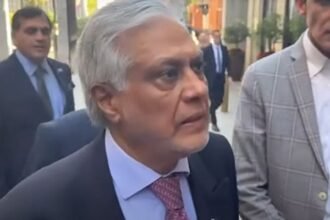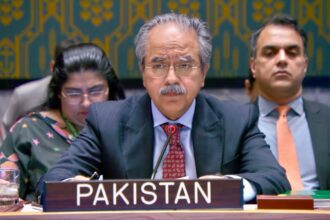ISLAMABAD — Federal Finance Secretary Imdadullah Bosal on Thursday dismissed rumours of a delay in the upcoming federal budget, confirming it will be presented on June 10 as scheduled.
Speaking informally to reporters, Bosal clarified that while the National Economic Council (NEC) meeting date might shift, the budget preparation for the upcoming fiscal year is moving ahead in close coordination with the International Monetary Fund (IMF). He added that virtual talks with the IMF would resume today, focusing on potential relief measures for the salaried class and industrial sector.
Bosal also noted that the date for the Annual Plan Coordination Committee (APCC) meeting remains undecided. Meanwhile, Pakistan expects approval of $800 million in funding from the Asian Development Bank (ADB) on June 3.
Earlier, sources from the Finance Ministry had hinted at a possible delay in the budget presentation due to the Eid ul Adha holidays, which fall on June 7–8 (Saturday and Sunday). To ensure the economic schedule stays on track, officials indicated that June 9, the third day of Eid, might be declared a working day to accommodate both the NEC meeting and the release of the Economic Survey 2025.
However, ministry insiders stressed the difficulty of holding both events on the same day, as the NEC meeting typically spans an entire day and involves the participation of provincial chief ministers, the Azad Kashmir prime minister, and Gilgit-Baltistan representatives. Traditionally, a two-day gap is maintained between the NEC meeting and the budget presentation. This has fueled speculation that the budget might shift to June 12, despite Bosal’s reassurances.
The budget presentation had already been postponed earlier this month from June 2 to June 10 due to pending fiscal negotiations with the IMF. Talks resumed last week but remain inconclusive.
On a positive note, Federal Finance Minister Muhammad Aurangzeb recently promised tax relief for the salaried class. Speaking at an event in Islamabad, Aurangzeb said the government aims to lighten the tax burden on salaried individuals, noting that their incomes are taxed directly as they are credited. He emphasized the importance of a strategic and forward-looking budget, not merely a routine income-expenditure statement.














